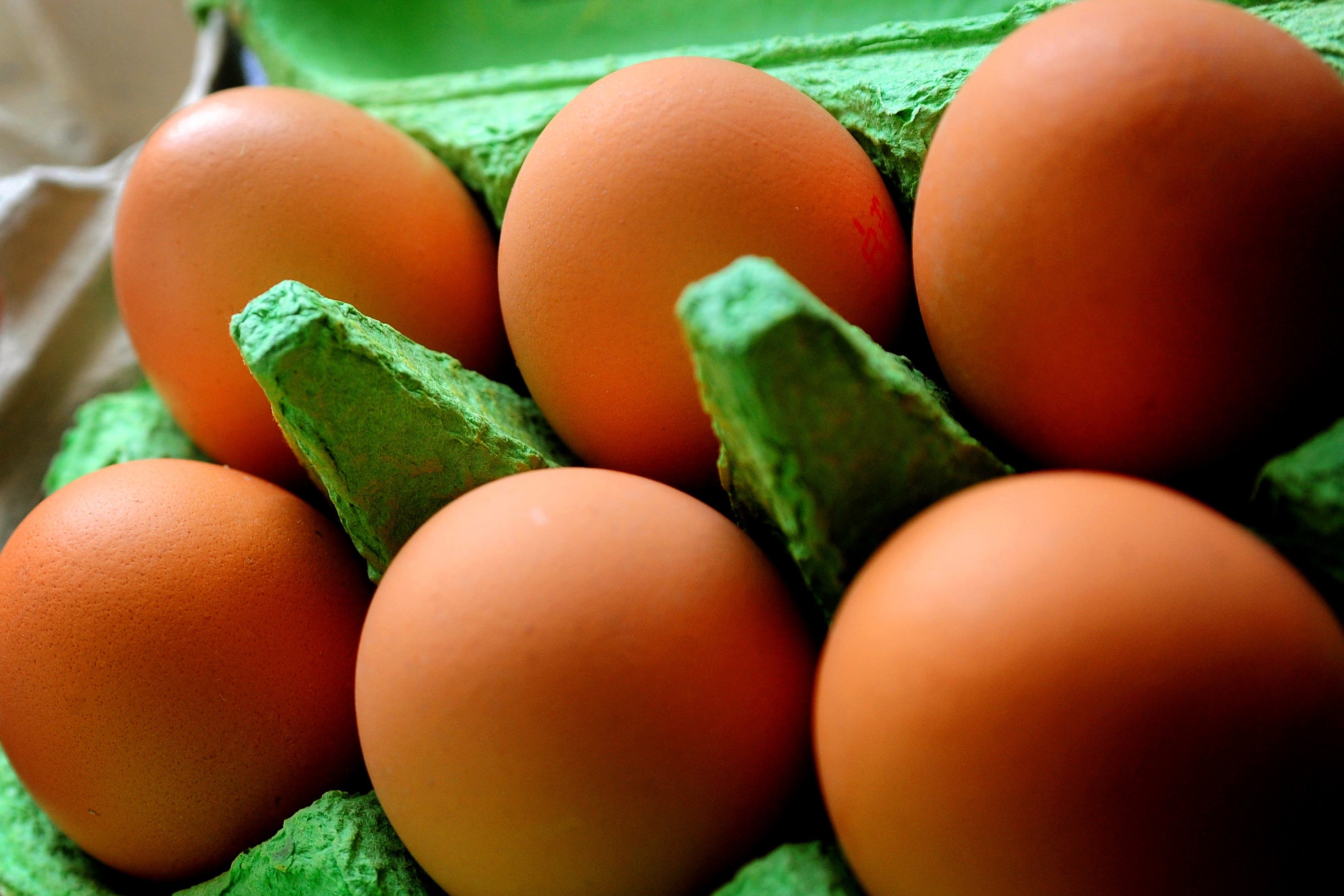Asda and Lidl limit egg sales amid supply disruption
Other major retailers including Tesco, Morrisons, Marks & Spencer and Co-op reassured customers that they continued to receive good supplies.

Asda and Lidl are limiting the number of boxes of eggs customers can buy amid supply disruptions caused by rising costs and bird flu.
Asda is limiting customers to two boxes of eggs each and Lidl is restricting customers in some stores to three boxes, while Waitrose said it had not introduced any limits but was “continuing to monitor customer demand”.
Other major retailers including Tesco, Morrisons, Marks & Spencer and Co-op reassured customers that they continued to receive good supplies and were not limiting sales.
The UK is facing its largest ever bout of bird flu, with a highly pathogenic variant circulating.
Since early November, birdkeepers have had to keep their animals housed and away from wildlife to reduce the spread. When there is a confirmed outbreak on a poultry or egg farm, all the birds in the affected area are destroyed, meaning fewer eggs in the supply chain.
The outbreak is compounding existing shortages caused by producers cutting back on output or leaving the industry due to increased costs, with Russia’s invasion of Ukraine driving up farmers’ energy bills along with the cost of chicken feed, hens and packaging.
We are working hard with our suppliers to resolve the industry challenges which are currently affecting all supermarkets
Demand for eggs is also up as consumers seek out cheaper sources of protein to offset soaring food bills.
An Asda spokesman said: “We are working hard with our suppliers to resolve the industry challenges which are currently affecting all supermarkets, and to make sure as many customers as possible can buy eggs we have introduced a temporary limit of two boxes per customer.”
The British Retail Consortium (BRC), which represents supermarkets, said avian flu was causing some supply disruption.
The BRC’s director of food and sustainability, Andrew Opie, said: “While avian flu has disrupted the supply of some egg ranges, retailers are experts at managing supply chains and are working hard to minimise impact on customers.
“Some stores have introduced temporary limits on the number of boxes customers can buy to ensure availability for everyone.
“Furthermore, retailers have long-standing, established relationships with their suppliers and know how important maintaining these are for their customers and businesses.
“Supermarkets source the vast majority of their food from the UK and know they need to pay a sustainable price to egg farmers but are constrained by how much additional cost they can pass onto consumers during a cost-of-living crisis.”
While avian flu has disrupted the supply of some egg ranges, retailers are experts at managing supply chains and are working hard to minimise impact on customers
The British Free Range Egg Producers Association (BFREPA) said avian flu had compounded the issue of egg availability, with the disease resulting in the compulsory culling of hundreds of thousands of egg-laying hens across colony, barn and free-range systems.
There were approximately 36.7 million egg-laying birds in the national flock, but there was capacity on farms for more than 44 million hens.
However, BFREPA has also been raising concerns about retailers failing to pay farmers a fair price for months.
Figures showed the average price of a dozen eggs has risen by about 50p in supermarkets but some farmers had only seen a price rise of between 5p and 10p, it said.
In March, BFREPA called on all retailers to increase the price paid to farmers by 40p per dozen.
On Wednesday, BFREPA said it had asked Sainsbury’s for an urgent meeting after the retailer confirmed it was stocking eggs imported from Italy.
BFREPA chief executive Robert Gooch said: “We have been warning for months that failing to pay farmers a price which allows them to make a profit would result in mass de-stocking or, worse still, an exodus from the industry.
“Seeing Italian eggs on the shelves is a wake-up call to all retailers that they can’t expect farmers to work for nothing. Enough is enough.
“I will be writing to Sainsbury’s today to ask for a meeting to discuss how we forge a more sustainable future for egg producers. Sainsbury’s has made strong commitments to British free-range egg producers in the past and I hope a positive dialogue can bring about change from what is a disappointing situation.”
Bookmark popover
Removed from bookmarks